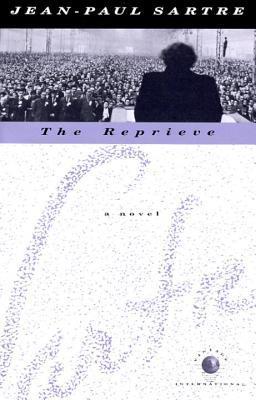What do you think?
Rate this book


464 pages, Paperback
First published January 1, 1945
He threw a last glance at the sea: war had not yet broken out: people were dining quietly in their villas: no guns, no soldiers, no barbed wire, the fleet at anchor off Bizerta or Toulon; it was still permissible to view the sea in splendour, the sea of the last evenings of peace. But it was inert and non-committal: an expanse of salt water, moving, but indicative of nothing.
The post-war epoch was a beginning. The beginning of peace. It passed unhurried, as a morning passes. Jazz was a beginning, and the cinema, which I so much enjoy, was also a beginning. Surrealism, too; and Communism. I hesitated, I chose with care. I had time enough. Time, peace—they were the same. And now that future lies at my feet, dead.

Outside the world, outside the past, outside myself: freedom is exile, and I am condemned to be free.
War: everyone is free, and yet the die is cast. It is there, it is everywhere, it is the totality of all my thoughts, of all Hitler's words, of all Gomez's acts; but no one is there to add it up. It exists solely for God. But God does not exist. And yet the war exists.
The war takes and embraces everything, war preserves every thought and every gesture, and no one can see it, not even Hitler. No one. He repeated: No one - and suddenly he caught a sight of it. It was a strange entity, and one indeed beyond the reach of thought.
'I am seen, therefore I am.' I need no longer bear the responsibility of my turbid and disintegrating self: he who sees me causes me to be; I am as he sees me.